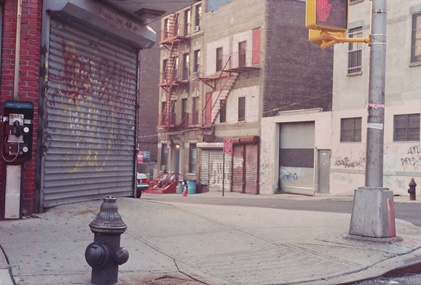The Problem
Standard procedure has been to release ex-offenders and expect them to fend for themselves with little or no guidance or support. There are many obstacles that interfere with their ability to successfully transition from being an inmate to being a productive member of society. Recitivism, those reoffending and returning to prison within the first 3 years from release, are shockingly high. Approximately 3 of every 4 released offenders will return to prison within that 3 year period IF they don’t receive help.
Problems an Ex-Offender Will Encounter

Housing:
- Apartments require background and credit checks before renting.
- Many transitional houses will only take those with addiction problems.
- Public housing no longer allows those with a record to live there.
- There is no grace period for someone who has been released. Even 10 (and more) years after release someone is still considered a “felon” and that’s held against them.
The most dreadful aspect of my transition was the halfway house. It can be so demeaning. It can be a trigger to aid to a return to prison based on the stress and confusion. - Alicia
When you finally leave the halfway house, you have to apply to rent a residence. Most landlords will NOT rent to a felon. Finding adequate housing is almost impossible and when you do it’s in neighborhoods that are not good for someone with an addiction history. - Joyce
LTC has helped many of us to secure deposits for apartments, electric, water, etc. This can all run into mega bucks. - Kimberly

Employment:
- Felony charges shrink the employment field significantly.
- Many ex-offenders lack a high school degree or GED.
- Housing difficulties make it tremendously difficult to find and keep a job. Without an address, potential employers are unable to contact them and without a home trying to keep a job is difficult and discouraging.
Stress can be defined as the job-hunting market. You only have so much time to secure a job or the halfway house will throw you out. You only have so much time between trying to figure out the transit, transfers, and getting to interviews on time. Places of employment are only in the lower paying jobs such as waitress, fast foods, cleaning, and call centers. - Kim
 Health:
Health:
- Women are released with unresolved health issues.
- Women tend to need more medical assistance than men.
- They usually have no insurance.
There is no medical coverage. This makes it very difficult. Blood pressure medicine and others meds are very expensive and I had no money. I applied for emergency food stamps and got them, but it doesn’t help with medical needs. - Ruby
 Mothers:
Mothers:
- Wish to be reunited with their children. Without housing or employment this is nearly impossible.
- These mothers are overwhelmed with the policies, procedures and pressure from welfare and adoption agencies as they frantically seek the aide they need to regain custody of their children.
- Family members are anxious to be relieved of child rearing and want the mother to take the child immediately.
I was asked to be an assistant Girl Scout Leader for my daughter’s troop. I was very excited. The leader answered truthfully. I had been the assistant for over 3 months when I received a letter. The Council stated they appreciated my efforts and willingness to support the troop, but at this time you are not needed as an assistant leader. - Joyce
While in prison, I wrote my children and talked to them on the phone. I was still their mother and wanted to be in their lives. My mom took care of them while I was in prison and told me as soon as I got out they were mine! I wanted my children, but I was in no shape to take care of them much less myself. Twice I was released from prison. My mom expected me home and taking them back immediately. I know mom was tired, but I was in no shape to take on the kids. I got stressed to the max and relapsed. The responsibility of my children is mine, but I wasn’t ready to even take care of myself. - Nadia

Social:
- Society tends to view ex-offender females through the lens of “good girls don’t do bad things”.
- They are alienated from many of their former connections.
- Some families disown them and/or refuse to allow them to visit their children.
- Technology has changed over the period of their incarceration and they are not “on the same page” as the rest of society.
My best advice for others filling out applications leave the question blank that asks about being convicted of a crime. I found that others pre-judged me if I filled in YES. Society does have a prejudice against ex-offenders and rightfully so because so many go back to the same old habits. They are not given a chance. That hurts us who are determined not to. - Estel
As for my new life called freedom. I’m daily working at restoring my existence in totality. Coping with the improvement of my present status is most difficult. I only earn $6 an hour, which is not easy to accept. It is so hard to get by on this amount of money without help from family. The ME, SELF-ABSORBED society is not attractive in my scope. This is so sad and I definitely do not want to acquire this trait. - Alicia
The dream of freedom quickly dissipates as she is immediately faced with all of these issues. Life becomes a race for which she is poorly equipped to handle.
We have a dream for these women: to help them successfully reenter society. We believe we have an opportunity and an obligation to help those who desperately need our help.
Leaving The Cocoon is the child of this dream.
For more government statistics regarding re-entry, please visit: Reentry Trends in the US.
The Solution